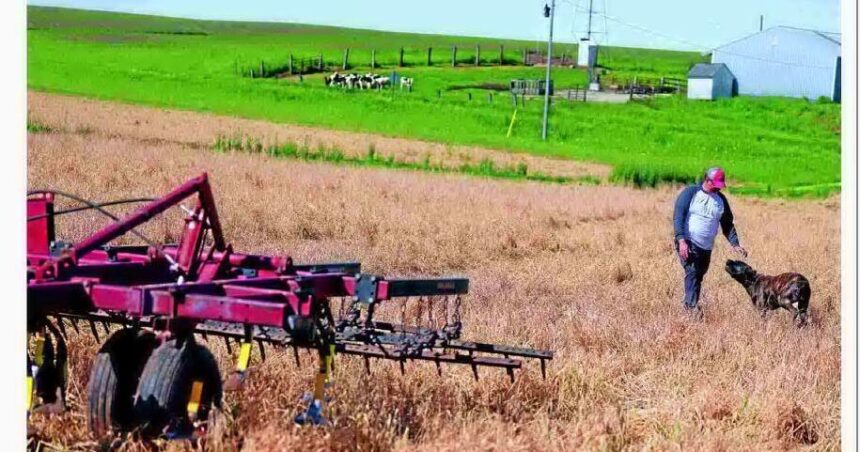Food companies have the option to transition entirely to renewable energy at their facilities, but without the cooperation of the farmers who supply them, their overall greenhouse gas emissions will remain largely unchanged.
Since farm operations and supply chains contribute more than 80% of the climate impact for companies like General Mills or Hormel Foods, businesses are now seeking carbon-capture initiatives.
Truterra, based in Minnesota, launched a carbon-capture program three years ago to help customers achieve their ambitious climate goals by 2030, and has observed an increase in interest from food producers.
“We act as a bridge between the downstream company’s requirements and the farmers we collaborate with,” explained Truterra president Jamie Leifker.
Truterra, a division of Land O’Lakes in Arden Hills, Minnesota, has compensated farmers with $21 million for sequestering over a million metric tons of carbon in the soil. While this is a small step towards reducing or offsetting the annual 670 million tons of greenhouse gas emissions from U.S. agriculture, the company believes it demonstrates the possibility of widespread change — one that is also profitable for farmers.
People are also reading…
“Last year, we doubled the number of participating growers. We are far surpassing our expectations,” Leifker stated. “We are now placing greater emphasis on our efforts with food companies.”
Customers such as Campbell’s, Bel Brands, and Purina pet food pay for data and carbon credits, which in turn compensate farmers for conservation practices, reducing the risks associated with altering their agricultural practices.
“Like most sustainability initiatives, this began with a discussion about risk,” said Laura Kowalski, head of sustainability at Primient, an ingredient company. “For us, it is about establishing a resilient corn supply chain.”
Primient began collaborating with Land O’Lakes on sustainability issues in 2018 as the Illinois-based company and more of its customers sought to reduce greenhouse gas emissions from production.
Truterra offers up to $30 per ton of carbon sequestered and a minimum of $2 per acre for farmers who implement various conservation and regenerative practices on their land. These payments accumulate quickly, with an average payout of $20,000 per farmer in the program’s inaugural year.
Jason Lohmann, a farmer in Zumbrota, has enrolled 340 acres in the Truterra program since joining two years ago. In exchange for upfront payments, Lohmann and other participating farmers across 1.8 million acres share data to substantiate sustainability claims.





